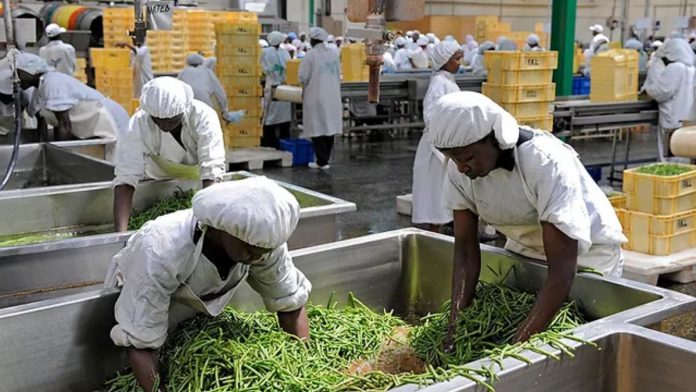News in brief:
-Â The CEO of the International Rescue Committee and a former UK Foreign Secretary revealed that Nigeria loses 60% of its agricultural produce due to inadequate storage and agro-processing facilities, impacting food security.
– He also attributed the recent spike in food prices in Nigeria and globally to the war in Ukraine, emphasising the interconnectedness of food systems and urging Nigeria to address specific challenges by investing in storage and processing facilities.
President and CEO of the International Rescue Committee, David Miliband, has disclosed that Nigeria loses 60% of its agricultural produce due to a lack of storage and agro-processing facilities.
His statement came during an event in Abuja where Miliband, a former Foreign Secretary of the United Kingdom, was a guest speaker. The event’s focus was on issues of climate change, food security and malnutrition.
He highlighted the issue of lack of storage as one of the major factors affecting food security in Nigeria and emphasised that the situation could be further aggravated by the climate crisis.
Additionally, he blamed the recent hike in food prices on the war in Ukraine, which has made food unaffordable for many in Nigeria and other parts of the world. Miliband remarked that the conflict has driven up the price of grain around the world.
He noted the link between the disruption in food supplies and escalating food prices globally. The former UK Foreign Secretary said the war pushed malnutrition numbers, food and energy prices up.
He further elaborated on the specific challenges that the Nigerian agricultural sector face like the fact that 60% of agricultural produce don’t reach the market. In other words, they don’t find their way from the farmer to the shop or the production venue, and then to someone’s plate.
Miliband stressed the interconnectedness of food systems, highlighting their global and local aspects. He also emphasised the impact of the climate crisis on these systems. He made special mention of an ongoing study on strengthening seeds for a drier climate as a potential solution.
Moreover, he expressed concern about the potential for Nigeria to be classified as a ‘climate-vulnerable’ country and the ongoing insecurity in the northern region. He added that there were 16 countries that suffer from conflict and are in the most vulnerable quartile of countries facing climate crisis. His list incuded Sudan, South Sudan, Yemen, and Afghanistan.
Overall, his speech underscores the urgent need for Nigeria to address specific issues and invest in improving its storage and agro-processing facilities. Numerous stakeholders have opined that by doing so, the country can significantly reduce post-harvest losses, while ensuring greater food security for its citizens.



